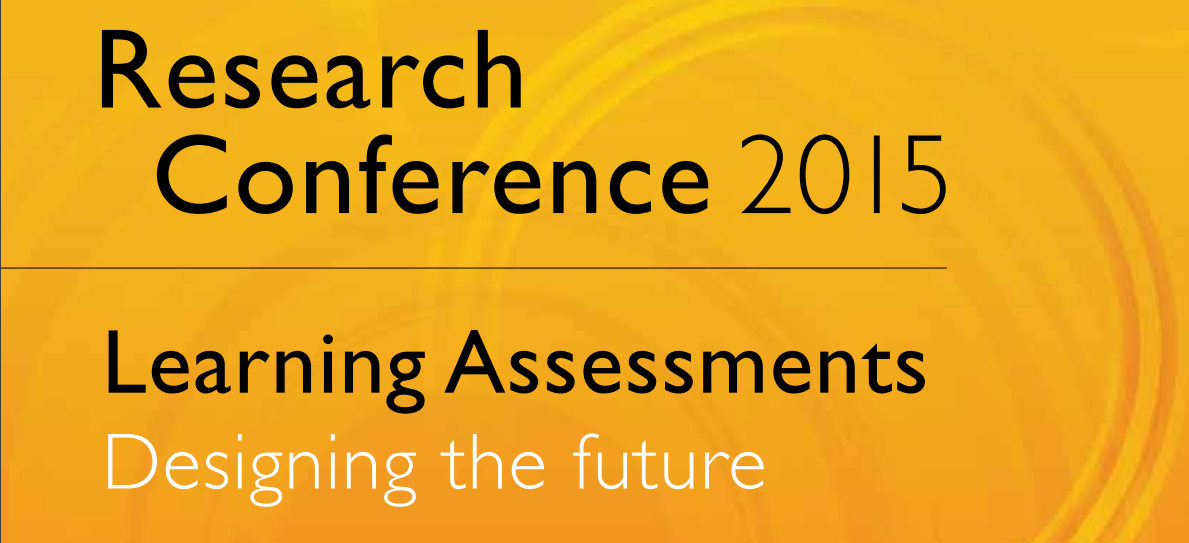
Monday 17 August 2015
Start Date
17-8-2015 11:15 AM
End Date
17-8-2015 12:30 PM
Abstract
The theme of the 2015 Excellence in Professional Practice Conference (EPPC), held by ACER in May, was Improving assessments of student learning. A review of content and presentations for EPPC showed up some important trends and issues for further analysis and discussion. In a significant number of schools, the focus on assessment was well integrated into an overall school improvement plan or approach. In other schools, the school process overwhelmed the focus on assessment, and at times even overshadowed the focus of the study to be shared. One group of presentations focused on using existing instruments in ways that advanced the teachers’ understanding of the issue and students’ knowledge and learning needs. Another group of studies demonstrated creative, practice-driven teacher research, largely by individual teachers, that had resulted in key advances in assessment practice. Renowned education thinker Lawrence Stenhouse in 1975 defined research as ‘systematic inquiry made public’. This presentation will argue that the advances documented at EPPC meet this definition, by demonstrating knowledge production that is not merely for self-consumption. The presentation will suggest key issues for supporting teacher research, and explore key issues still in need of research and innovation in the field. There is a critical place for teacher research among the range of assessment, pedagogy and curriculum integrations which can be developed through a range of research methodologies. Practices for classrooms may well be dreamt up outside those classrooms — yet unless and until those practices are co-produced by teachers and students, they remain in a black hole, unpractised. There is thus a central and creative role for teachers in developing assessment practice, whether or not the innovations are supported by research. Indeed, the best research useful for teachers and their students around assessment may well identify the in-practice problems which are yet to be creatively addressed.
Recommended Citation
Brennan, M. (2015, August 17). Reflecting on teacher research on assessment: Challenges and innovations for the future [Paper presentation]. Research Conference 2015 - Learning assessments: Designing the future. https://research.acer.edu.au/research_conference/RC2015/17august/6
Copyright Statement
Copyright Australian Council for Educational Research 2015
Place of Publication
Melbourne
Publisher
Australian Council for Educational Research (ACER)
ISBN
9781742862873
Reflecting on teacher research on assessment: Challenges and innovations for the future
The theme of the 2015 Excellence in Professional Practice Conference (EPPC), held by ACER in May, was Improving assessments of student learning. A review of content and presentations for EPPC showed up some important trends and issues for further analysis and discussion. In a significant number of schools, the focus on assessment was well integrated into an overall school improvement plan or approach. In other schools, the school process overwhelmed the focus on assessment, and at times even overshadowed the focus of the study to be shared. One group of presentations focused on using existing instruments in ways that advanced the teachers’ understanding of the issue and students’ knowledge and learning needs. Another group of studies demonstrated creative, practice-driven teacher research, largely by individual teachers, that had resulted in key advances in assessment practice. Renowned education thinker Lawrence Stenhouse in 1975 defined research as ‘systematic inquiry made public’. This presentation will argue that the advances documented at EPPC meet this definition, by demonstrating knowledge production that is not merely for self-consumption. The presentation will suggest key issues for supporting teacher research, and explore key issues still in need of research and innovation in the field. There is a critical place for teacher research among the range of assessment, pedagogy and curriculum integrations which can be developed through a range of research methodologies. Practices for classrooms may well be dreamt up outside those classrooms — yet unless and until those practices are co-produced by teachers and students, they remain in a black hole, unpractised. There is thus a central and creative role for teachers in developing assessment practice, whether or not the innovations are supported by research. Indeed, the best research useful for teachers and their students around assessment may well identify the in-practice problems which are yet to be creatively addressed.

